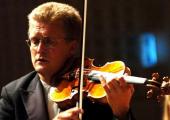BBC Scottish Symphony Orchestra, Runnicles, Royal Albert Hall
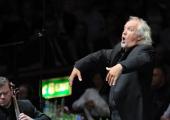

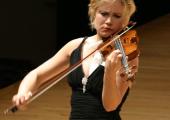
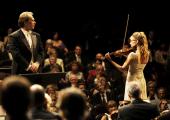
Give any masterpiece of classical music a central role in a film - and everything else straightaway faces the highest standards of comparison. In Radu Mihaileanu’s The Concert, it's the Tchaikovsky violin concerto, and from the opening frames the music delivers everything it should – though whether it’s enough to hide other noises (clunking in the script department being only one of them) is another matter.


Brilliant though it was to be shooting an Imagine film for BBC One, we did experience the occasional tremor of foreboding about making a programme with Nigel Kennedy. We (that's me and director Frank Hanly) had a bit of previous with Nigel - I'd done several print interviews with him, and we'd shot a couple of short films with him for EMI.

Rossini provided the lively curtain-raisers to both halves of this Chamber Orchestra of Europe concert, streamed live to Aberdeen where Shell, the sponsors, have something of a vested interest in keeping their employees entertained. The liquid gold on this occasion was of the legato variety and not one but two Fischers ensured that it flowed freely and purposefully. Ivan Fischer is quite simply one of the most perceptive and persuasive conductors on the planet; Julia Fischer (no relation) is the epitome of German cool and precision. She plays the violin rather well, too.
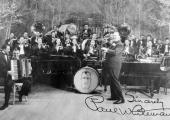
This month the selection varies from sackbutts to serialism, by way of condensed Wagner, Elgar conducted by the much-missed Vernon Handley and music from both Shostakovich and a disciple of his. Among contemporary music there is Osvaldo Golijov’s lively setting of the Passion story and the young German composer Thomas Larcher and the great Henri Dutilleux. There are also more delights from Swiss master Frank Martin. Violin pyrotechnics are supplied by Ysaÿe. But we begin with vintage Gershwin, and that famous looping clarinet.
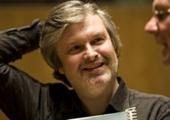
"There is not one idea," wrote that intemperate critic Eduard Hanslick about Richard Strauss's Till Eulenspiegel, "that does not get its neck broken by the speed with which the next lands on its head." Rather a compliment, I've always thought, and certainly so as applied to James MacMillan's new Violin Concerto. As soloist Vadim Repin and conductor Valery Gergiev whirled us tumultuously through its hyperactive songs and dances, there was so much I wanted to savour, to hear again. That won't be a problem.
